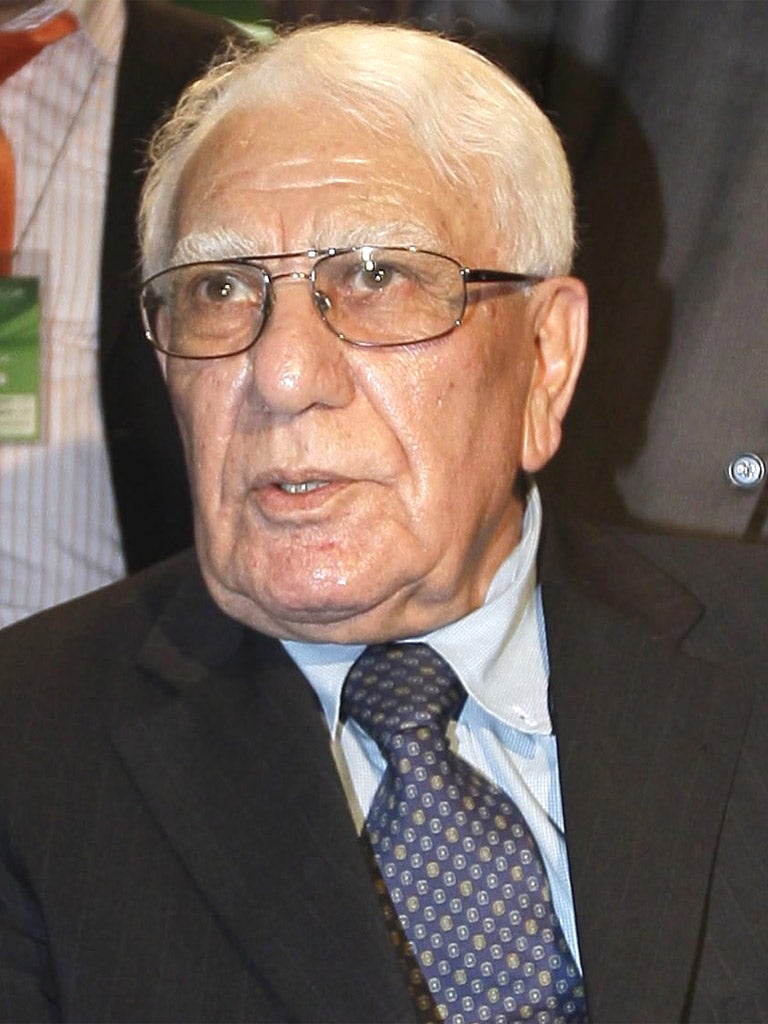Chadli Bendjedid: Politician whose reforming zeal led to bloodshed

Chadli Bendjedid was a former President of Algeria whose political fall coincided with the introduction of democratic reform which served only to spark a decade-long, bloody civil war. He became President in 1979, following the death of Houari Boumedienne, and declared at his inauguration that he had no interest in the wealth and honour that might be bestowed upon him, affirming that socialism was "an irreversible option for our country". In fact he set out to gradually rid Algeria of his predecessor's influence and his often repressive policies.
Boumedienne had been viewed by the West as a vociferously radical Third World leader who gave refuge to hijackers and terrorists and supported liberation movements round the world. Under Bendjedid, Algeria's tone became increasingly more moderate and conciliatory as he moved the country away from hard-line Arab states like Syria, Libya and South Yemen.
He built up a role for Algeria as the Middle East's mediator and advised and mediated on a number of disputes arising from Middle East terrorism, including acting as an intermediary between Iran and the United States in 1981 during the siege of the American Embassy in Tehran, eventually receiving the 52 hostages when they were freed. He also provided a haven for PLO guerrillas fleeing the Israeli invasion of Lebanon in 1982, and granted asylum to members of Eta, Spain's Basque separatist organisation.
Under the slogan "For a Better Life," Bendjedid turned Algeria away from the Soviet-style economic system that had characterised independence, gained from France in 1962 after 132 years of colonial rule. He also steered the country away from the Soviet sphere of influence toward its current security alliance with the West, moderating its policies and ending its flirtation with radical groups in the region. In 1985, he became the first Algerian president to pay an official visit to the US.
In 1988, with Bendjedid coming to the end of his second term, the country was shaken by sporadic riots. He launched a bold democratic and economic reform programme, promising to relax restrictions on trade unions, open up the media, reduce state interference in the economy and end the monopoly on political power enjoyed by the National Liberation Front, or FLN . But the reforms failed to satisfy an increasingly assertive fundamentalist Islamic movement.
When the Islamic Salvation Front swept the first round of parliamentary elections in December 1991, Algeria's generals stepped in, pressed Bendjedid to resign and cancelled the elections scheduled for January 1992. The coup ignited a brutal and devastating civil war that claimed over 200,000 lives and continues to taint Algeria's political and social life. Bendjedid was placed under strict house arrest until 1999.
As President, Bendjedid had endorsed what he called the "non-exploitive private sector" and introduced greater incentives for farmers in an attempt to eradicate the Soviet-style land-collectivisation plans implemented by his predecessor. He dismantled some monolithic state-owned companies and broadened links to the West. Slowly, Marxist influence on the oil-based economy gave way to a combination of socialism and capitalism. However, Algeria's inherent problems remained, with agricultural productivity declining and an over-reliance on imports to feed its fast-growing population.
High prices forced an exodus from the countryside to the cities in search of work, of which there was little. With an increasing number of disenfranchised and often unemployed men under the age of 21 (57 per cent of the population), many were lured by the Islamic clerics. Political instability was inevitable.
The son of peasants, Chadli Bendjedid was born in 1929 in the village and commune of Bouteldja on the Mediterranean coast, bordering Tunisia. With no prospects, he became an NCO in the French Army. After serving in France's failed effort to save Indo-China, he defected and joined the FLN guerrillas soon after the war for independence began, on 1 November 1954. The eight-year conflict eventually cost the lives of 300,000 Algerians and 21,000 Frenchmen.
In the years following independence, Bendjedid rose through the ranks of the armed forces, and in politics, too, becoming head of the military region Oran in 1964. He was also a protégé of Houari Boumedienne, and was an ally in 1965 when Boumedienne, the post-independence defence minister, launched a coup to overthrow Ahmed Ben Bella, the FLN leader and independent Algeria's first president. Bendjedid's loyalty was rewarded with a position on the Revolutionary Council and promotion to Colonel in 1969. In January 1979, he was appointed secretary-general of the FLN and elected president a month later.
In later years Bendjedid, who died of cancer, gave lecture tours at universities and other public forums. His memoirs are due for publication in November.
Martin Childs
Chadli Bendjedid, politician: born Sebaa, Bouteldja, Algeria 14 April 1929; married Halima Ben Aissa; died Algiers 6 October 2012.
Subscribe to Independent Premium to bookmark this article
Want to bookmark your favourite articles and stories to read or reference later? Start your Independent Premium subscription today.

Join our commenting forum
Join thought-provoking conversations, follow other Independent readers and see their replies